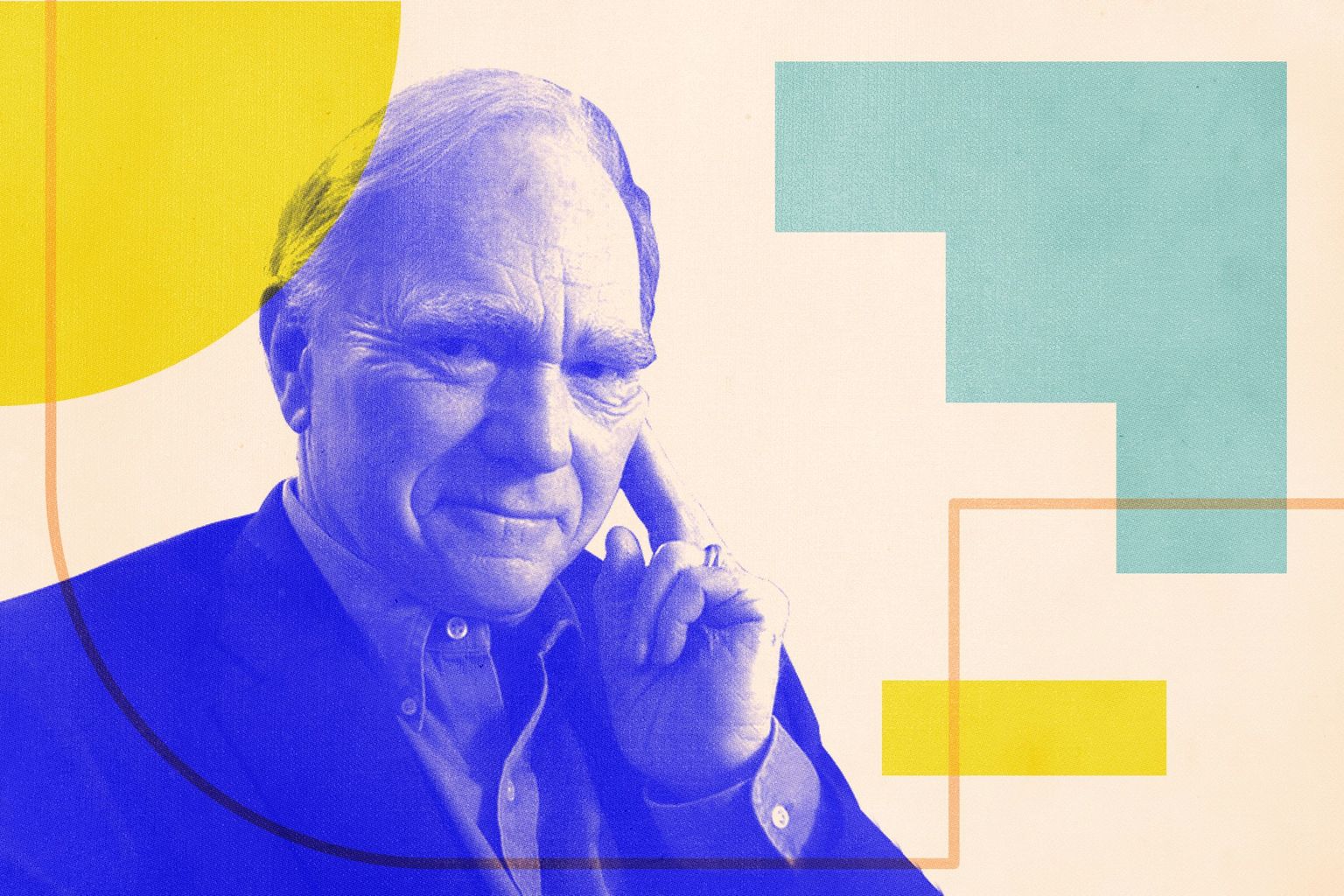Four storytelling tips from Robert McKee
The screenwriting guru dispensed plenty of advice in a recent interview. Here are a few of our favourite kernels of wisdom.

Photo-illustration: Emily Thiang; Photo courtesy of subject
You may not know Robert McKee by name, but if you’ve watched a movie at any point over the past few decades you’ve almost certainly felt his influence. His how-to book Story is widely regarded as the screenwriting bible, and graduates of his three-day Story Seminars include basically every Oscar and Emmy winner to have ever put pen to paper.
All of which is a long way of saying that McKee knows storytelling, even if some writers dispute his approach, which, according to the below scene from the 2002 film Adaptation, seems to largely involve yelling.
A more avuncular McKee recently appeared on the Longform Podcast to discuss his new book Character: The Art of Role and Cast Design for Page, Stage, and Screen. It’s a good listen, as the Longform Podcast often is, full of insights both large and small. Here are some of our favourite tips from the storytelling juggernaut:
Our brains are story-making machines
Why do we see ourselves as characters in a three-act play when life is actually a garbled mess of events that happen more or less at random? According to McKee, the answer has something to do with how our brains are structured.
“When psychologists were first trying to figure out how the mind works, they came to the realisation that the mind ‘storifies’ its own experiences,” he tells host Aaron Lammer. “It converts reality into story form, and it stores it in memory in exactly the same part of the brain where it stores all the fictional experiences it has.”
“Every novel you’ve ever read, every film you’ve ever seen, plus all the experiences of your life, have all gone to the same location in your brain,” he continues. “And this is why often things that happened to you seem like a story, and why stories you’ve experienced seem real.”
We remember the good and the bad, not the neutral
In Adaptation, a fictionalised Robert McKee excoriates (an also fictionalised) Charlie Kaufman for attempting to tell a story where “nothing much happens”.
In real life, McKee is a little more nuanced about the nature of reality: the “real world” might not actually be structured like a film, with conflicts and resolutions following one another in perfect harmony. But if our brains are going to see things that way, storytellers need to know how to talk to them on that level.
“Ninety-nine point nine-nine per cent of what you experience in life is immediately forgotten,” McKee explains. “It never gets recorded, because it has no value charge; it’s neither positive nor negative, it’s just neutral.”
What our memories are looking for, he says, “are those experiences that are either threatening to your life or supportive of your life”. The key to sorting the positive and negative experiences from the neutral ones, then, is empathy. And it’s empathy that makes you a good storyteller. “You can’t really know what’s positive or negative if you’re not aware of what’s going on inside of people.”
Good storytellers are like psychoanalysts
According to McKee, “it’s impossible for human beings to say out loud what they’re deeply thinking and feeling, for the obvious reason (that) 90 per cent of what they’re really thinking and feeling is subconscious.” You couldn’t explain yourself even if you wanted to, so how can a storyteller?
The answer: by going deeper into their character’s heads than the characters could themselves. “Writers can’t possibly create excellent non-fiction or fiction if they’re not aware of what is going on inside of other people, even subconsciously, while they go about saying whatever they do consciously in the world. Because if you just recorded the surface, you’d be missing the whole show.”
Writing is rewriting (and reading, and re-reading)
It may seem obvious given the guy has been teaching the principles of storytelling for nearly 40 years, but McKee hates the notion that storytellers are born rather than made.
“There’s this romantic myth that writers just give birth spontaneously,” he says. “That somehow the muse just descends into their mind and it’s all just going to flow out of them because they’re so brilliant, so talented. And that, of course, is absurd.”
He points to Moby Dick author Herman Melville as evidence. “Melville read every novelist he could get his hands on. And he would read these stories over and over and over again—10, 20, 30, 40 times—staring at the page asking himself, ‘How did this writer achieve that effect? Why did he compose the sentence that way? Why did this writer do the things they did and how did that affect me?’”
It was only by reading and re-reading other writers, McKee claims, that Melville honed his craft. Of course, Melville didn't have Longform episodes to listen to, so there's really no telling how good he could have been.
You can listen to McKee’s Longform Podcast interview here.
